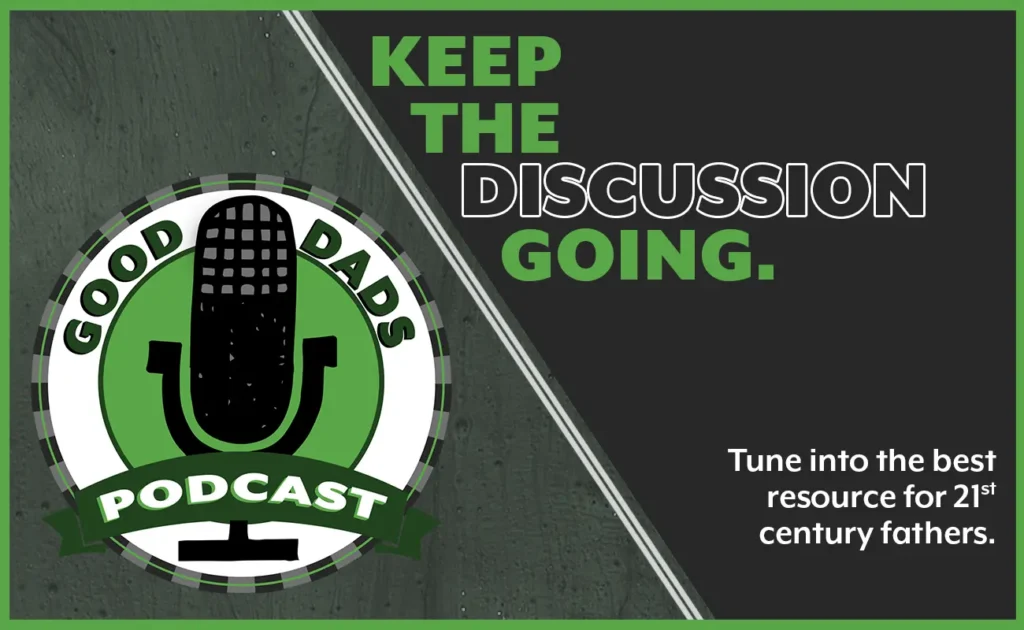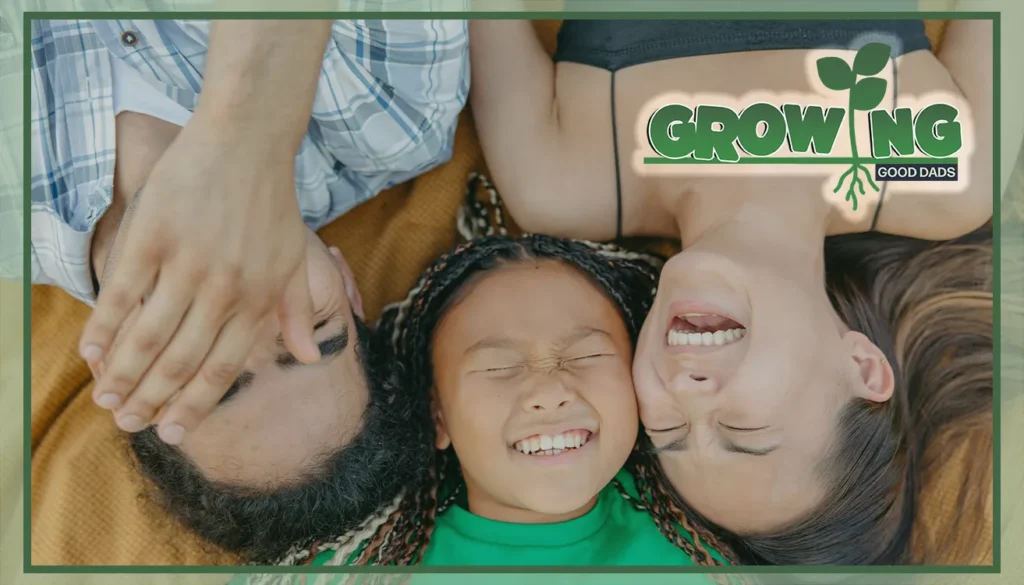This month on the Growing Good Dads blog, we’re turning to some of the most important sources of wisdom and experience on teenagers: Educators! We’ve reached out to high schools in the Springfield area and are excited to bring you a variety of coverage you won’t want to miss. To kick off the month, we hope you enjoy this pun-tastic article from Glendale High School’s Dr. Bob Lynch. And keep an eye out for next week’s article from a Parkview teacher!
I got an A on my origami assignment when I turned my paper into my teacher.
As a composition teacher, I thrive on word play because words hold phenomenal power. A few small choice words could ruin someone’s day—but why not use that power to brighten it instead?
Dad jokes create social bonding by using humor that is simple, playful, and pun-based. Because dad jokes are light-hearted and non-offensive, they invite laughter in a non-threatening way, which eases social interactions. With witticisms and humor sprinkled throughout my instruction, I help relieve tension and stress in an already rigorous, and oftentimes tedious, environment. More importantly, I use the moans, groans, and chuckles from the dad jokes to show my students how simple creativity not only expresses individuality, but also connects us to each other in an overly complicated world.
While dad jokes may seem simple or cheesy, their clever wordplay has a surprising ability to promote social bonding, reduce stress, and inspire creativity—making them far more powerful than they appear.
When does a joke become a dad joke? When it becomes apparent.
A dad joke is like finely aged cheese—it’s slightly corny, a little cheesy, and almost guaranteed to make one groan, but we still love it (even secretly). It is the kind of joke that sneaks up on us with a pun so bad, it’s good. The joke is delivered with the confidence of someone who has told it 1000 times—and will tell it 1000 more.
I feel bad for students who have taken multiple classes of mine because they have heard the same jokes repeatedly. On the other hand, they seem to love my jokes. Maybe it’s because shared laughter in a classroom creates a sense of belonging.
Dad jokes transcend social barriers, so they help students feel more comfortable and connected. When our students laugh together, it creates a shared experience, unifying them. This communal moment helps students feel included, making my classroom a more welcoming and supportive environment. Furthermore, laughter reduces anxiety and tension, which makes it easier for students to build relationships, fostering an atmosphere where our students feel they belong and are valued.
I wanted to start this next section with a joke about stress, but I got too anxious about it.
Fortunately, laughter plays a powerful role in improving mental health by reducing stress and boosting overall well-being. When we laugh, our bodies release endorphins, which creates a sense of happiness. This biochemical response not only promotes comfort but also promotes relaxation and emotional balance.
Therefore, by engaging in laughter, our students can experience immediate release from tension, foster positive interactions, and enhance their immediate relief from everyday stressors, supporting a healthier mental state. Furthermore, dad jokes can be a valuable tool by lightening the mood during stressful times, such as before a research paper about elephants where students aren’t allowed to use the letter “e” (true story – I have my students write this paper so they can learn how to paraphrase).
To ease the tension of this crucible, I tell them what may well be my favorite joke: “What do you get when you cross an elephant with a rhino? ‘El-if-I-know!” The simple idea of dad jokes, often with a punny nature, helps alleviate anxiety and tension. By incorporating dad jokes, we can create an environment where humor breaks down barriers, promotes camaraderie, and makes challenging moments more manageable, giving us a brief respite from external stressors.
Humor, especially from the light-hearted nature of dad jokes, plays a crucial role in coping with stress and anxiety. In moments of high tension—such as exams, presentations, or other tight deadlines—laughter is the best medicine.

LEARN MORE: E374-Dad vs. Dad | Clayton vs. Clayton
A study from the University of Oxford found that social laughter releases endorphins, our bodies natural mood enhancers, to relax the atmosphere and ease the mind. A simple joke like “If I got 50 cents for every failed math exam, I’d have $6.32 now” might seem trivial, but its playful nature offers a brief escape, helping our kids relax and approach their challenges with a clearer, calmer mindset. This power makes dad jokes an effective, low-pressure tool for stress management in most environments.
Of course, parents can take advantage of the power of dad jokes to strengthen bonds with their kids. In moments of stress, whether it’s during a challenging homework session or an emotionally tough conversation, a simple dad joke can offer a quick mental break and lighten the mood. These jokes can serve as a playful way to show our children that it’s okay to pause, laugh, and regroup. It establishes comfort in stepping back when life feels overwhelming.
Using humor in parenting not only helps reduce anxiety but also fosters open communication, teaching our kids that it’s possible to approach life’s challenges with a sense of humor. In fact, research studies from McMaster University and Loma Linda University found that families who engage in humor together tend to build stronger emotional bonds. By incorporating these light-hearted moments into our daily lives, parents can help their children develop emotional resilience and experience connection.
While some students (and even some adults) see dad jokes as clichés, they cannot deny that there is education to be had. Dad jokes offer unique cognitive and creative benefits by encouraging quick thinking and playful use of language. Through their reliance on puns and wordplay, dad jokes encourage listeners to make connections between homophones, enhancing cognitive flexibility.
For instance, understanding a joke like “I’m reading a book about anti-gravity – I can’t put it down” requires the brain to interpret the dual-meaning behind the phrase “put it down,” involving both the literal act of setting down a book and the feeling of being affected by gravity. These mental gymnastics strengthen brain power by encouraging lateral thinking.
Moreover, crafting a dad joke stimulates creativity, as it demands the ability to link unrelated ideas in unexpected ways. A joke like “What did the buffalo say when his son left for school? Bison” cleverly combines the concept of animals and homophones, showing how dad jokes stretch both the imagination and cognitive abilities in surprising ways.
While dad jokes may come across as corny, their impact goes beyond simple humor—they foster connection, reduce stress, and stimulate creativity. These light-hearted jokes prove an opportunity for bonding, whether between parents and kids, teachers and students, or among friends, all while encouraging quick thinking and cognitive growth. And remember parents, a well-timed joke is more than just a moment of levity—it’s an opportunity to model resilience and emotional balance.
So, embrace the groans, share the laughs, and do not be afraid to use dad jokes as a fun tool for connection and stress relief. You, my dear audience, are all honorary dads, so make us fellow dads proud.
I told my students 10 jokes to try to make them laugh, but no pun in ten did.




